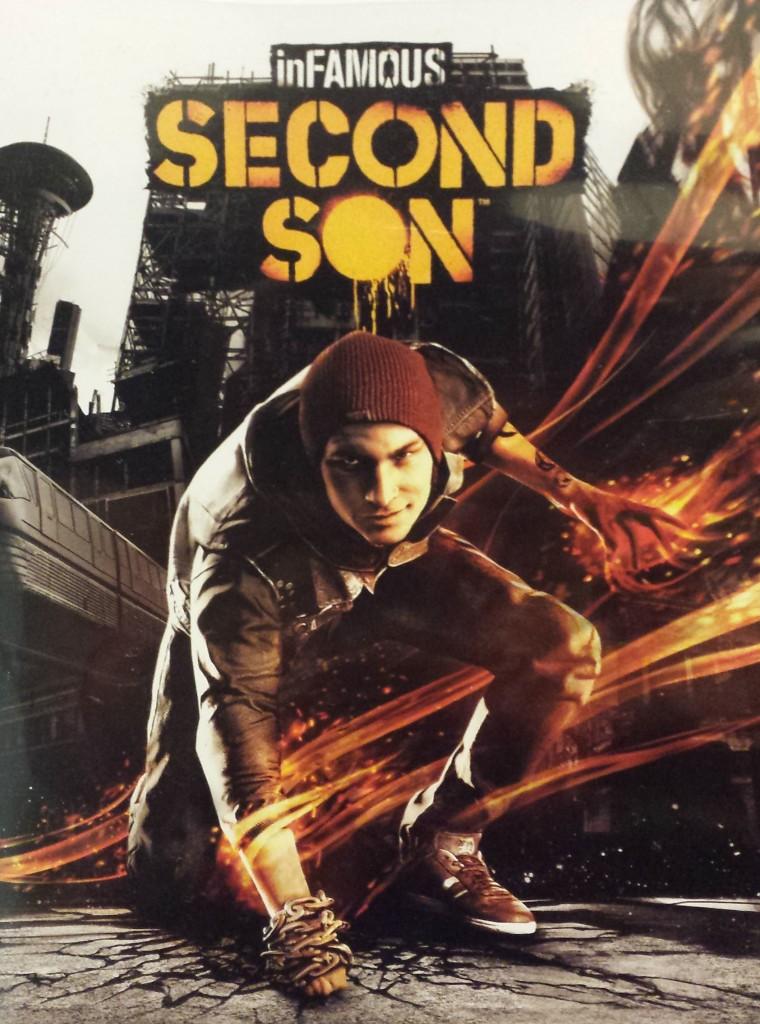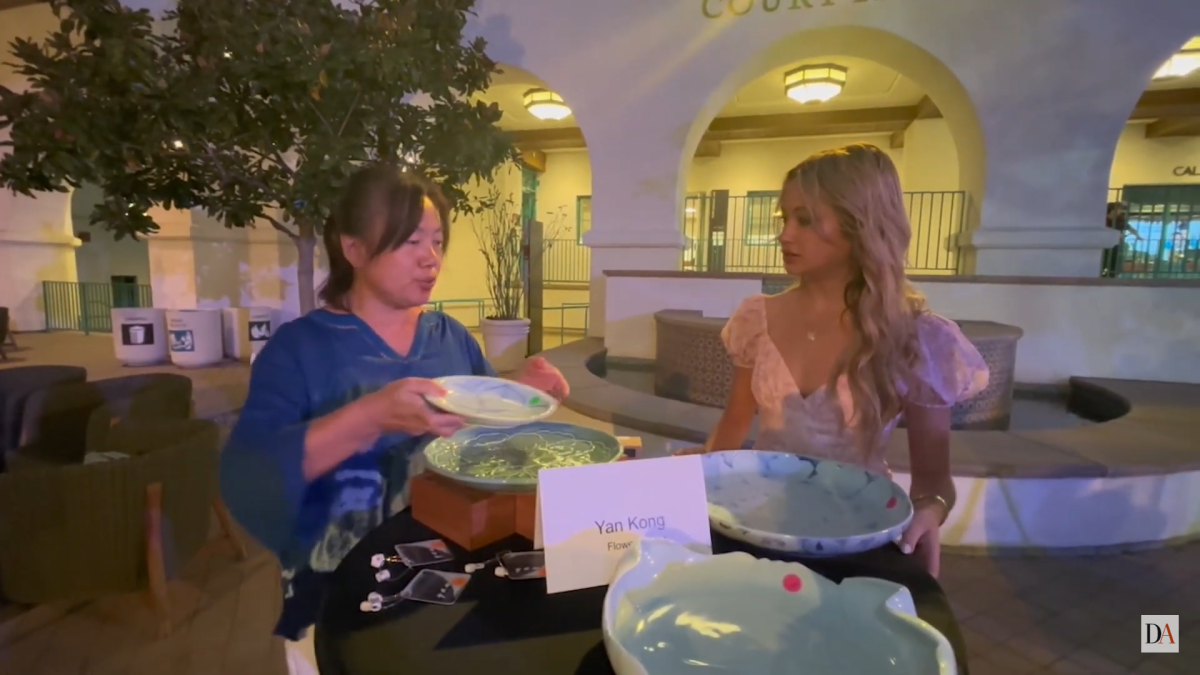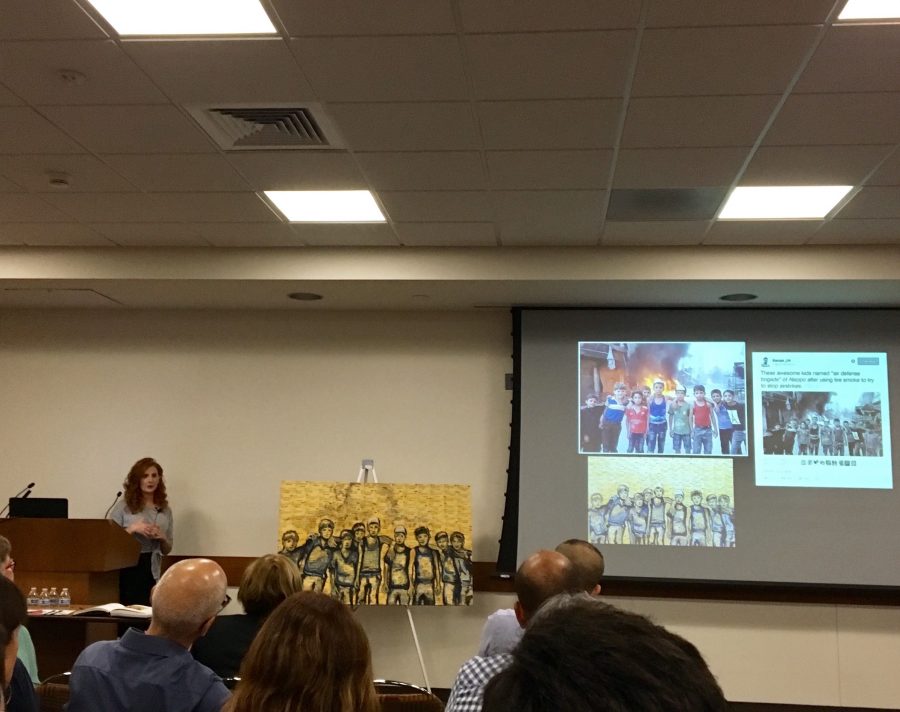It’s been three long years since we last stepped into the super-powered romp that is the “inFAMOUS” series. Seven years after the New Marais incident, “inFAMOUS: Second Son” puts you in control of Delsin Rowe, a small-time vandal with ambitions to make a name for himself. However, as inn any superhero story, obstacles stand in his way.
“Second Son” is the third game in the “inFAMOUS” series and may be the best one to date, despite a few problems.
“Second Son,” developed by Sucker Punch Productions, best known for “Sly Cooper” and the “inFAMOUS” series, is a tale of rebelling against an oppressive governing body. Delsin, a member of the Akomish tribe, was like any other graffiti artist in his mid-twenties. However, unlike most graffiti artists, Delsin’s brother Reggie is a cop who frequently has to arrest Delsin for vandalism. The Rowe brothers are the main characters of the game, and serve as opposites for one another. Delsin is brash and rebellious, while Reggie is level-headed and tends to operate by the book. It’s this dynamic that really helps make the story of “Second Son” enjoyable.
“Second Son” takes place seven years after the protagonist from the previous “inFAMOUS” games, Cole McGrath, gave his life trying to save the world, and it seemed conduits all around the world were killed off. However, there were still a handful of people who still had the conduit gene in their DNA. Delsin happened to be one of those people, but his conduit power was something that had never been seen before. He had the ability to absorb conduit powers from “Prime” conduits and use them as if they were his own. Through a chance encounter, Delsin absorbs the powers of a fugitive conduit with the power of smoke. With his new power, Delsin becomes a target for the Department of Unified Protection and its founder, Brooke Augustine.
“Second Son” is also a reboot of sorts. There are no returning characters during the main campaign, and the events of previous games are only briefly mentioned. That aside, it offers much more gameplay options in the form of multiple powers. Of course, the karma system makes a comeback and is largely the same. However, the differences in abilities feel much more subtle than in previous games. The differences in powers and Delsin’s look are pretty easy to see. A “Good” playthrough causes Delsin to don a white and blue color scheme and his powers get a blue tint to them, except for smoke, which makes sense. A “Bad” play-through makes Delsin wear more red and black and gives all of his power a fierce red look.
Different powers are hinted at early on, but I’ll only mention the two that have been revealed in trailers in the interest of avoiding any other spoilers. At the beginning, Delsin’ absorbed smoke powers serve as his entryway into becoming a conduit, and feels similar to Cole’s electricity powers.
Delsin can fire off concentrated balls of smoke and ember, charge up and release a blast wave that essentially acts like a shotgun attack, shoot cinder rockets, throw bombs that explode in a plume of smoke and float around with smoke thrusters. With his smoke abilities, Delsin can dematerialize into smoke to perform a dash or use vents to get to the tops of buildings quickly. When Delsin defeats enough enemies, he is given access to his “Karmic Bomb” ability. With smoke powers Delsin can use the “Orbital Drop,” an extremely powerful ability that involves Delsin shooting up into the sky and then propelling himself back toward the ground to create a huge explosion, which will either kill all enemies in the area or subdue them. As for melee attacking, Delsin uses a chain wrapped around his wrist like a whip and imbues it with whatever power he is currently using.
In addition to smoke, Delsin also acquires “neon” powers. These powers are replenished by the myriad of neon signs scattered around Seattle and give Delsin the ability to streak around the city as a great neon blur, fire off concentrated beams of light energy, shoot great glowing neon missiles, and throw grenades that create stasis bubbles, among other things. For instance, Delsin’s whip essentially becomes a light saber, which is one of my favorite things about the power. An innate ability with neon called “Laser Sight” allows Delsin to see enemies’ weak points, which effectively turns him into a sharpshooter.
Using smoke and neon offers two fairly different kinds of combat. Although they may have the same sort of attacks, each ability has to be used differently. Neon is far more precise and good for sniping enemies, whereas smoke is extremely destructive and perfect for an in-your-face brawl. Although you can’t simply switch powers on the fly-you have to use whatever power you absorbed last. In other words, if you run past a smoke stack and absorb the smoke, you’ll be using smoke powers. Then, if you run up to a neon sign and absorb neon from it, you’ll be using neon powers. Switching between powers like this makes combat feel much more frantic and improvisational, and can lead to amazing moments. For example, during my “Good” playthrough, I used neon to snipe at enemies’ weak points and subdue them to build up my Karmic Bomb. From there I found a smoke stack, absorbed smoke, and then performed the Orbital Drop to dispatch the rest of the enemies in the area.
There’s still plenty to do when not doing story missions. Numerous districts throughout Seattle are occupied by the D.U.P. and are begging to be conquered one by one. Each time you take down a D.U.P. outpost, you unlock several side missions. These range from searching for audio logs to destroying hidden cameras and searching for blast shards to upgrade your abilities. Each district has an outpost to be defeated, side missions to knockout and culminates in a D.U.P. showdown that pits you against a horde of different enemy types (ex: helicopters, armored vehicles with turrets, or super D.U.P. agents). Once all of these objectives are completed, the area is liberated and you’re given a fast travel point and a new logo for Delsin’s vest. Once every district is cleared, however, the D.U.P. will periodically stage an assault that is completely optional to address. Nothing happens if you don’t, sadly.
So say you cleared all of the districts, collected all of the blast shards, and beat the game What is there left to do? This is where “inFAMOUS Paper Trail” comes into play. “Paper Trail” is an Alternate Reality Game that takes place in both the world of “Second Son” and the real world. “Paper Trail” is a murder mystery that has you chase down a paper-based conduit as she leads you to multiple murder scenes. At each scene there is evidence to collect and pictures to take. These pictures are uploaded online and must be viewed from the Internet (you can do this on your PC, smartphone, or PlayStation 4 if you so choose). Once on the site, you have to do some detective work to figure out who the next victim will be and so on. Although I don’t have mucb experience with ARGs, “Paper Trail” is a very interesting addition to an already fantastic adventure.
“Second Son” is great and though the story and the characters aren’t as good as the previous games, it makes up for it with enhanced gameplay and a game world that is beautiful to behold. Combat feels fluid, satisfying, and varied with the inclusion of new powers. Traveling through the city is faster and more entertaining than ever-dashing into vents as smoke and launching out of the top of buildings, or running up the sides of buildings as a neon blur and not having to rely on power lines to get around.
I would have loved to see a better plot. It felt like any other run-of-the-mill superhero story, but luckily the game itself was fun to play. If you have a PS4, this is a definite must-buy.
Also read: ‘Metal Gear Solid V: Ground Zeroes’ is short but sweet
Jordan Pollock, staff writer







